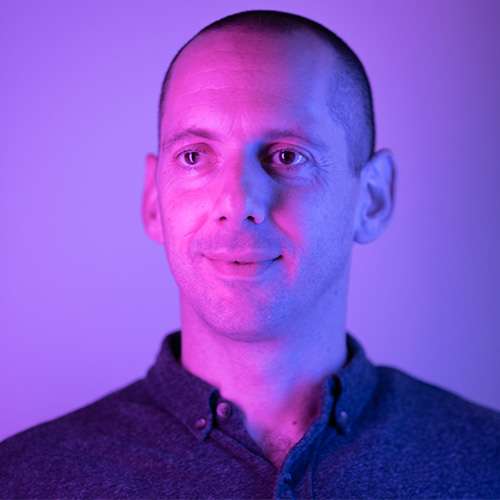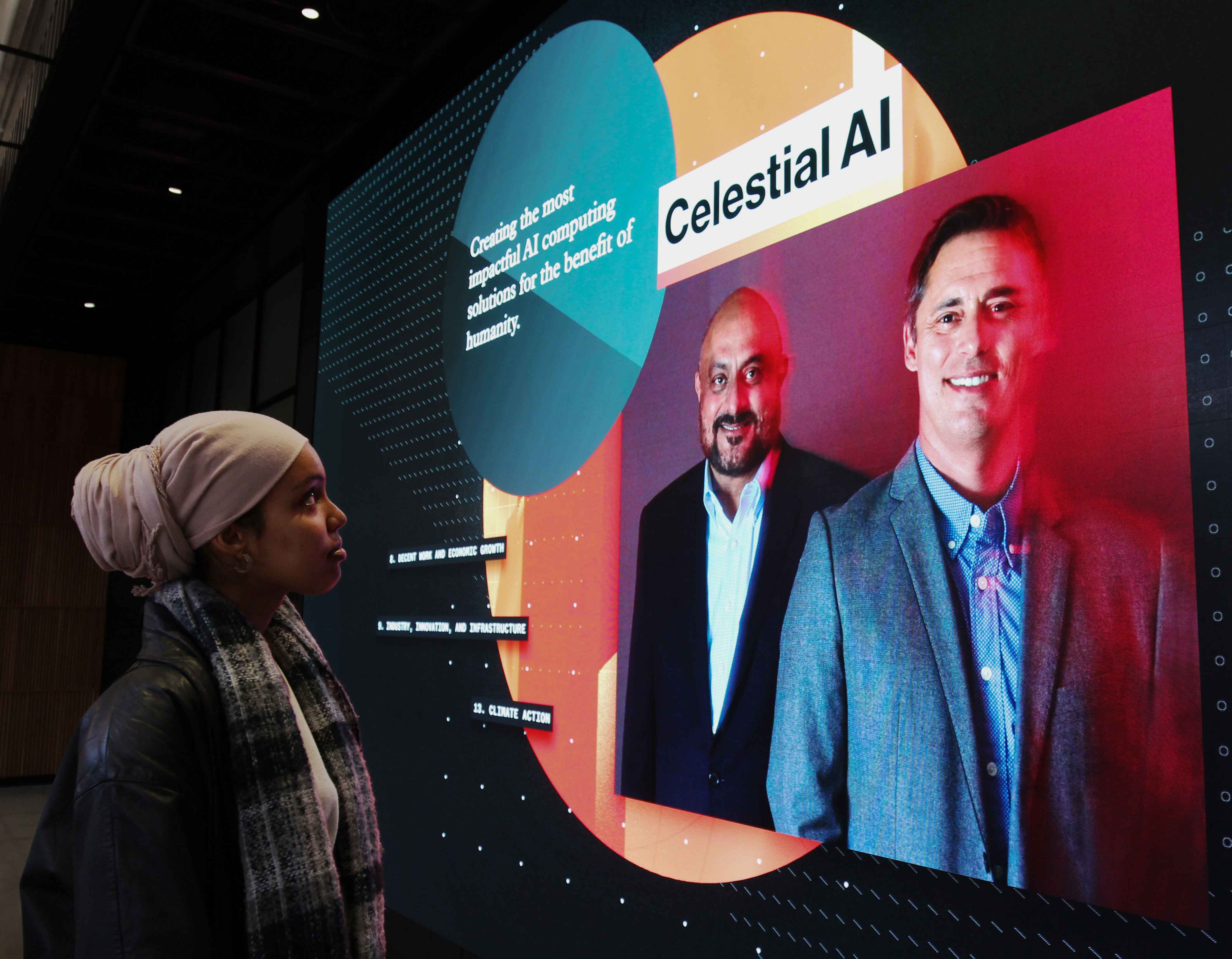If you have ever heard the term "Tough Tech," you may not know that one of the movement's biggest supporters lies with an innovative company out of Cambridge, MA, known as The Engine.
[The Integration Guide to Digital Signage 2023]
Founded in 2016, The Engine was built by the Massachusetts Institute of Technology (MIT) to create a more optimistic future, bridging the gap between discovery and commercialization for breakthrough inventions that make it easier for Tough Tech founders and companies to change the world. The Engine defines Tough Tech as any transformative technology that solves the most important global challenges through the convergence of breakthrough science, engineering, and leadership.

Two entities were formed and housed under the singular brand: Engine Ventures, a venture capital firm investing in early-stage companies, and The Engine Accelerator, which ensures these companies have support systems in place in addition to capital. “We run programs for them as they’re thinking about spinning that out in company formation, bridging the gaps between idea to investment and investment to impact,” explained Emily Knight, COO, The Engine Accelerator.
But even for one of Tough Tech’s biggest innovators, it’s sometimes hard to connect the Tough Tech dots and communicate that clearly with the community at large. For its new office building in Cambridge, where they moved in August 2022, The Engine wanted to construct something beautiful and design-oriented, clearly speaking to people about the transformative significance of the problems that Tough Tech startup founders and their companies tackle in a digestible way.
Simplified Storytelling
That’s where digital experience design firm SOSO came in, helping The Engine visualize the concept through a video wall called The Engine Story Wall. “We needed someone who could take this blend of technology and hard-to-understand things and make it visually appealing, develop a story, and make it fresh,” said Knight. SOSO sought further assistance from the architectural firm Gensler to help flesh out the design and detailing for the project.
[Report: Digital Signage Software Sector to Exceed $7 Billion in the Next Decade]
Located in the entryway of their headquarters’ event space that faces outward to the neighborhood, onlookers are immersed with information concerning The Engine’s top problem areas: climate, infrastructure, and human health. “It’s like every day you could look at this and see different pieces of it,” added Knight.

Over a two-week install process, with the wall going up over a 12-hour time frame, integrator AdTech assisted with installing the selected technology, highlighted by Planar TVF Series 1.8mm LED video wall tiles mounted using standard Planar mounts. SOSO and The Engine selected the Planar display due to its ability to show within the given space, allowing content to be clearly visible from the outside since the video wall was very close to a window.
Measuring almost 22 feet long and about 11 feet high, the 1.8mm pixel pitch allowed them to present crisp graphics and colorful forms, almost giving the appearance of floating on the screen through graphics designed for the exact screen resolution. “I think tying the resolution of the graphics to the resolution of the screen is an important piece of this, which I think often gets overlooked,” said Eric Gunther, creative director for SOSO.
Using a custom, web-based CMS system built by SOSO’s team, The Engine staff can login from any location to easily upload content of the companies they want to highlight. The system also pulls live data through established hashtags and system algorithms, providing The Engine with a control system that can continue to evolve as they scale their work.
“We can create dynamic views that are always changing,” added Gunther. “As the data changes on the back end, the front end is constantly updating.”
The dynamic nature of the screen allows it to stand out, pulling in data on the fly, like when the team integrated X (formerly Twitter) feeds or recently collected press stories to be featured in the content stream. The software is developed to have an organic, stream-of-consciousness approach to presenting the content, starting with a fixed point and then looking at everything related to that to build out the content, giving people a constantly changing window into a dynamic ecosystem.
“Even with the fixed content, you never know which way it’s going to go through the ecosystem,” Gunther explained. “There’s an ecosystem of The Engine Ventures’ portfolio companies, investment areas, and UN sustainability goals. There are all these different pieces, and it’s constantly finding new paths to that information. Almost like a giant visual pivot table.”

The dynamic nature of the screen allows it to stand out, pulling in data on the fly, like when the team integrated X (formerly Twitter) feeds or recently collected press stories to be featured in the content stream. The software is developed to have an organic, stream-of-consciousness approach to presenting the content, starting with a fixed point and then looking at everything related to that to build out the content, giving people a constantly changing window into a dynamic ecosystem.
“Even with the fixed content, you never know which way it’s going to go through the ecosystem,” Gunther explained. “There’s an ecosystem of The Engine Ventures’ portfolio companies, investment areas, and UN sustainability goals. There are all these different pieces, and it’s constantly finding new paths to that information. Almost like a giant visual pivot table.”
Visualizing the Message
The installation process encountered minimal issues or challenges; a minor overheating issue required increased venting, which was the only thing the team had to work through on the technical side. Knight referenced that the biggest challenge was SOSO needing to be patient with The Engine as they learned how to use this medium to conceptualize their ideas.
[Editorial: Is Your Digital Signage as Good as DFW's Restroom?]
“They were very patient with us as we changed our minds, what we wanted, and how we referred to things,” said Knight. “We have different ways of talking about things and verbalizing them. We absolutely got it right, but we probably went through many iterations and made them change over time.”
SOSO said they began to visualize the video wall almost like a machine, a visual machine that is the vehicle in which to share information. The team focused on condensing all the complexity into understandable imagery, demonstrating the work's impact on their lives.
"These are like big physical parts reconfiguring in real time to tell the story," added Gunther. "Some parts of that were quite challenging to build in software—and to the point where I felt like I had to make sure it was clear to people on the street and they walked away with something.”

However, the display has had an unexpected internal reaction. Knight wasn’t sure the founders or executives would ever see it, but they have become some of the biggest consumers. When The Engine hosts events within the space, the video wall complements or enhances what the executives or founders speak about, including enlarging their pictures behind them as they present. They have also had content running during other events where attendees, for the first time, make the connection about what The Engine truly does.
The Engine is even presenting a series on what Tough Tech is and its impact, and the video wall helps provide a more professional, engaging setting. Knight hopes this is just the beginning of ways to utilize the technology. “It’s become connective tissue in ways we didn’t even think it would,” she said.
In the future, The Engine looks forward to expanding the different inputs that go into the content, expanding outputs with new companies, more areas of Tough Tech, and trending news stories. “We get to continue to tell the story and tell it in a bigger way that circles back to the impact,” said Knight.

